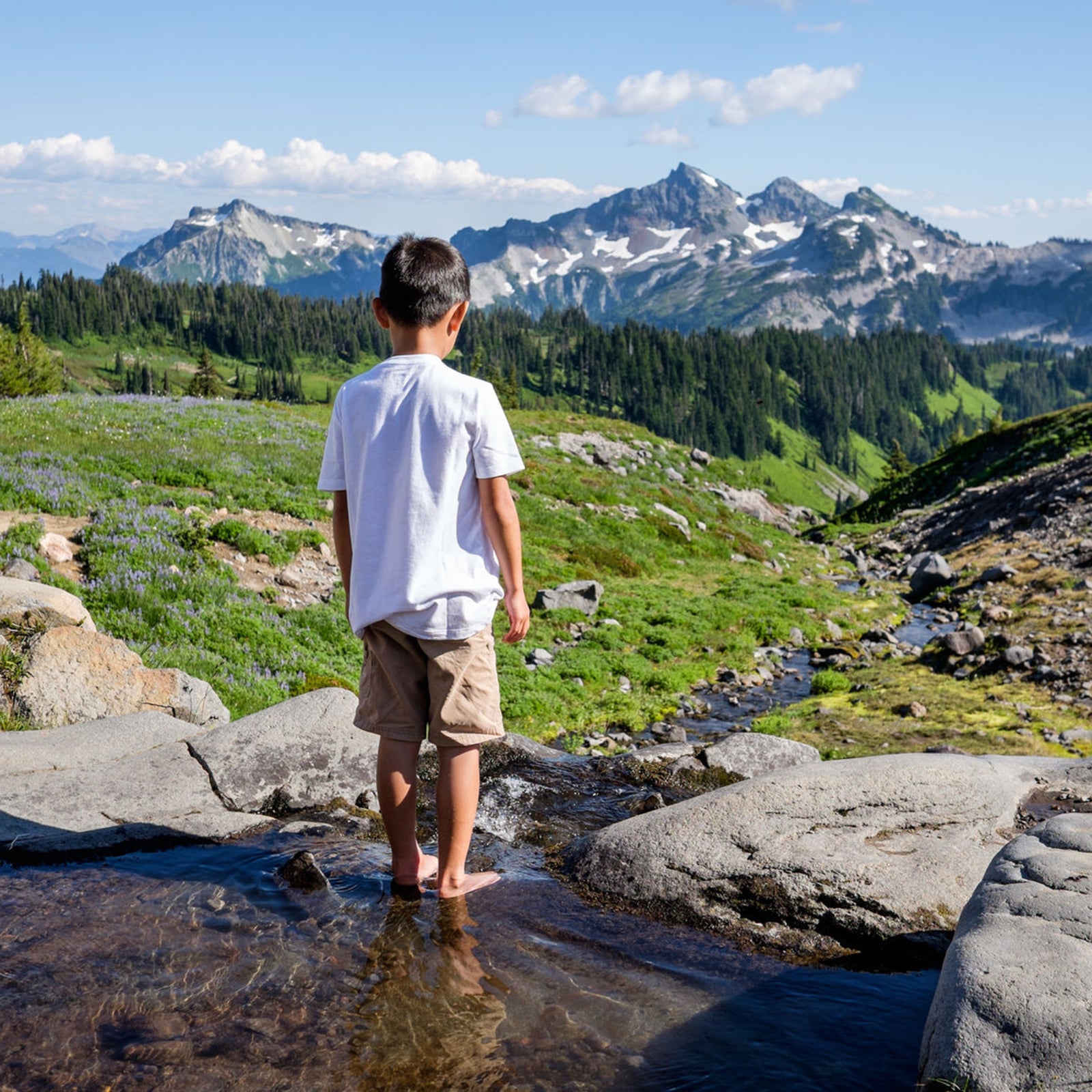Several years ago, I was pedaling a cargo bike uphill with my three- and five-year-old sons, who were savagely heckling me. “Go faster!” they cried. “Speed it up, slowpoke,” they laughed. Something in me snapped. I pulled over to the side of the road, made both boys get off the bike, and established a rule: they could only be radically encouraging and say things like “Go, Mommy, go! You’re so strong!” They had to practice ten times before I allowed them back on the bike.
This was not simply ego stroking. I love my boys, obviously, but the world does not need more men who think being rude or obnoxious is acceptable. In my dream world, a boy “just being a boy” means acting with kindness, compassion, humor, and empathy. I want my boys to be brave but not jerks. No one likes a smug know-it-all.
Through a mix of hands-on experience, books and articles, conversations with my (brave) husband, and interviewing experts in child development, I’ve come up with several tips for raising brave boys. (It’s probably important to note that my kids are now seven and nine—I’ll report back in ten years, after puberty hits, and let you know how much of this still holds true.)
Establish Responsibilities
I expect my boys to help clean the house, do their laundry, load their dishes in the dishwasher, and share with one another. I hope I would have those same expectations even if I had a daughter, but , I’d be more likely to pile domestic obligations on her than on them. The gender gap, it turns out, starts at home, where parents give girls more work than boys. This must change. And the only way it will is if parents delegate equal domestic responsibility to boys and girls.
Foster Kindness
Since my kids were young, I’ve encouraged them to name their feelings, especially when they’re unsettled and vulnerable. When one of them says he feels “fragile,” we talk about it, and the family makes a concerted effort to treat him with extra kindness. I’ve never told my kids to “man up,” and I have no plans to. If they cry, I hug them. As they’ve gotten older, they treat one another and their friends similarly.
Encourage Emotional Strength
This is a big one for outdoor education. Paul Dreyer, the CEO of and a longtime NOLS instructor told me, “Emotional strength is being strong for others, supporting them. This can be cheering on a friend struggling to finish a climb on belay, or stepping back and letting a kid go in front of them instead of taking the first turn.” This teaches kids that their involvement extends beyond the hands-on part of the activity. In other words, the world doesn’t revolve exclusively around them.
Develop Physical Strength
The modern world doesn’t care if your kids sit in front of a screen for hours every day. You should. Joy and confidence can come from being physically strong. That’s why I take my kids hiking, skiing, ���Ի���mountain biking, even if they start out whining. And while you’re helping them get strong, expose kids to different options, says Dreyer. “That way they get a chance to experience both strength and weaknesses across multiple sports,” he says.
Model Humility
I do not want to see more dudes holding court about how awesome they are, even if those dudes are my sweet spawn and are only seven and nine. When the boys get too braggy, I point it out so they know how they sound. I strive to send the message that love of the sport is better than shouting how great they are from the rooftops.
Talk About Fear
A lot of boys get the message that being vulnerable is tantamount to being weak. This pressure can lead to depression and anxiety, said Dreyer: “Teaching boys to think about fear and vulnerability as opportunities for growth—instead of evidence of weakness—will go a long way toward a more equitable world where everyone feels more satisfied and confident in who they are.”
Recently, my nine-year-old came home from the soccer car pool in tears, because one of the other boys made mean comments to him on the drive. He wanted to quit the car pool, possibly even the sport. After several conversations, his distress seemed rooted not just in the other kid’s immaturity but feeling inadequate on the team and worrying that his teammates agree with his bully. Not everyone can be a star player, I told him. And not everyone is kind. We named the problem, practiced how he could respond, and he played (and carpooled) on without trouble. This was a minor incident, but my hope is that small things like this will add up, develop trust, and help my boys build confidence and grow into more empathetic, mature human beings.


